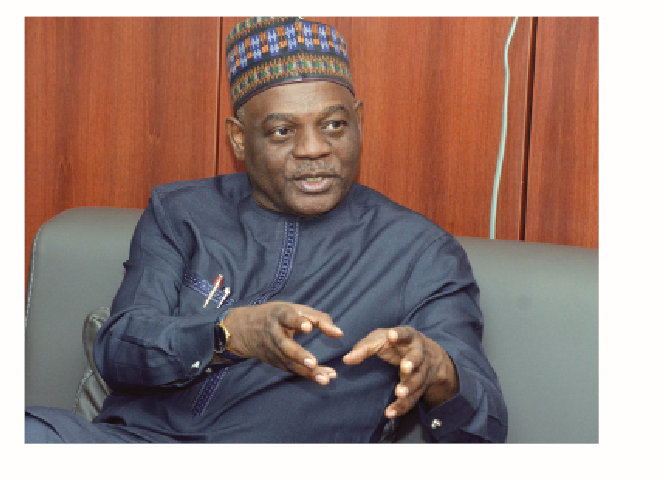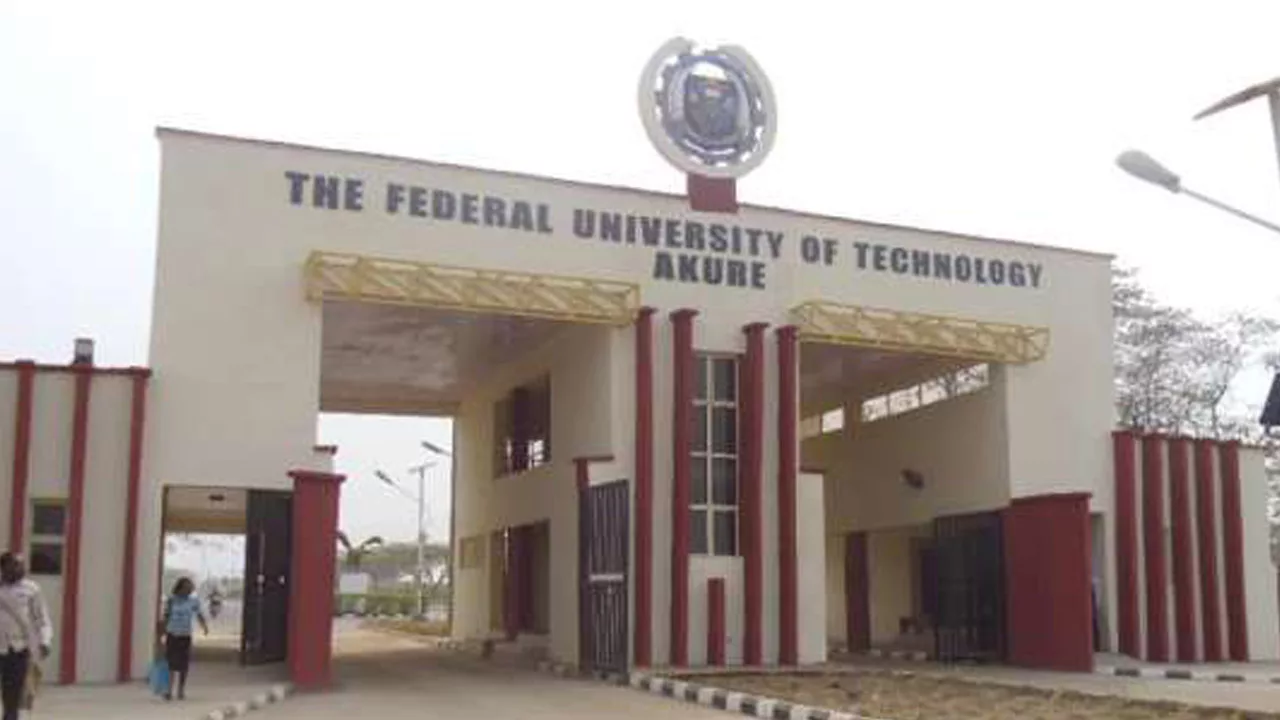You recently received the national honour award of Officer of the Order of the Niger (OON) from President Muhammadu Buhari for your impact in the society. How do you feel about this national recognition?
First, let me express my deep appreciation to the body of federal permanent secretaries led by the Head of Service that made the recommendation to Mr President for graciously approving the component of the award. Well, it’s supposed to reflect one’s contributions. Throughout my tenure as permanent secretary, I started from the Federal Ministry of Agriculture and thereafter, I went to the Ministry of communications before my redeployment to the Ministry of Education in August 2017. So, the first reaction is one of gratitude and appreciation and the other is the fact that it’s a motivation. Once your services are appreciated, it has to give you the impetus to do more and to dedicate yourself to a greater vehicle and that is my expectation – not just for me but for all the recipients. Also, it’s a way of rekindling hope in the populace that if you work very hard, if you work conscientiously, somebody who could acknowledge is watching and it actually act as an incentive for others who want to do the same to emulate and to aspire for the same.
Since you assumed office as Executive Secretary of TETFund in March 2022 there has been a flurry of activities at the Fund. How would you describe the journey so far?
Yes, we are committed not only to delivering our projects promptly, but also stepping up the quality of construction. When I came on board I made the point very clear that given my projects background it’s absolutely imperative that the quality of our projects will have to showcase the fact that professionals in that area are in charge. I also conveyed this to all our contractors. We issued deadlines, and on our own we also made promises; we held ourselves accountable for any submission that comes to us. We complete all the processes, including going to visit sites, assessing and making processing deployment within two weeks. We have been holding ourselves to that standard. It has always been the tradition and I’ve been very lucky to have very committed staff. So my staff have been wonderful.
Whenever I give them the chance, I can see the enthusiasm which features in the robust reports I receive. Through that dashboard you see there I can actually monitor all our projects across our beneficiary institutions right there and then and I can talk in real time and they even upload the photographs of the picture into a project and I have that right to the heads of institutions. We have a timetable that will take us all the way to April of next year. We met with institutions to address issues around what we call distressed projects – projects that have not been moving very well or that ought to have been completed but are yet to be completed; or still, those that have contractual disputes. We’re also meeting with experts for good planning and procurement staff. We stick with our own to see how we can work out because we’re committed to completing all these ongoing projects.
We also encourage institutions. We are now giving them a new way to do what’s called multi-year budgeting. But one of the things we found that we wanted to address is the fact that because our budgets cycle is one year and our disbursements have a one year cycle, most institutions that just begin small dots in the composition of most small projects want to be able to complete them within a one year cycle. And also because TETFund contracts have been described as fixed costs they are tied to the one year side or two. But now we have allowed them to do much better. They can do iconic projects.
You can do a Senate building and wait for three years, four years with all allocations consolidated instead of being forced to do those small projects. Even within our own system, we are refining our guidelines that will be unveiled very soon, but we have issues on transitional directives to institutions on the new changes that we’ve introduced. There are areas of focus now that we are getting. So basically, our delivery mechanism has been reinvigorated and we are training the institutions and also organising workshops for them. We were in Lagos and Kano for procurements and I think next week, they’re going to Enugu. We have experts and we also educate them on how best you can live on that project. So that is all about the reforms we are doing and the results are what you’re seeing.
I was particularly impressed you mentioned Makurdi because two of those projects started this year and they have been completed and commissioned. So, you can see how responsive and particularly impressive the quality of work of the contractors is. We don’t award contracts in TETFund; we encourage the institutions and this is the type of contractor you should be giving your projects to. I also conveyed to the BPP that we’re having a system that is based on merit that encourages good performance. When that happens based on the track record, the BPP should be able to grant a waiver for them to award the contracts to contractors that have done very well.
Are you not disturbed that despite all the successes recorded in the Fund, some persons are alleging procurement racketeering and contract splitting. How would you react to this?
Well, I’m glad that a comprehensive response was made when this happened. Just like I told you in the previous conversations, we are a Fund. We are not a procuring entity and we are not a beneficiary institution. There is a little bit of money that is left for us to run our operations. Yes, we do those things like a photocopy paper – like if I want to get a few laptops; like if I want to publish something in a newspaper, we get those recordings input, otherwise, we are not a contract entity. So we don’t award any contract. I have told you that when we saw a very good contractor do a good job we recommend it to the institution because our job is to inform the institutions. The institutions decide what their needs are, what projects they want to implement and they forward those proposals to us. These are the things you see on our table there. We are now gradually seeing that; we’re beginning to tell them that we should be doing them online because we don’t even want any face to face contact. So from this year all our IT intervention has been done online. So nobody comes here to talk about ICT. You do it online and we respond in real time; we check each and every one and we confirm. So, you don’t even need to come here and that is part of improving our processes and transparency. You know you don’t even need to come here; it is done virtually.
So the answer to that is very simple. We don’t do any contract here. We don’t even determine the projects to do. They are the ones to choose the projects. They will bring it to us and we will confirm that the pricing is right, that the project is in line with a particular intervention they’re talking about and we confirm the procurement. This is very clear about who has power to approve. TETFund is not in any one of them. All the interventions in our beneficiary institutions are either approved by the Chief Executive depending on the amount. The Chief Executive here is either the vice chancellor the Provost, or he goes to their own tenders’ board in the university. They have their tenders approved and if it is beyond their approval it is taken to the Federal Ministry of Education. So when I was in the ministry, we used to approve for them and if it is beyond the approval threshold of the ministry it will go to a different Federal Executive Council. You hear on Wednesdays that the government has approved this and that.
It’s important that we make this very clear. In the last couple of months, I understand it has been on but it has gotten to another level. There are some evil men going about impersonating people and I realized that we’re not the only people but of course TETFund is in the eye of the storm. I just read this morning that the DG of NAFDAC removed herself completely from all social media, saying that a lot of people are impersonating her. So that’s what they’re doing to us. They are hacking, they are creating fake email and they will now divert you and give you a different phone number and they will put my picture. They are the crooks going about impersonating. They will say they are friends of TETFund or they have people in TETFund.
They don’t talk about contracts but they talk about special interventions they can go to TETFund and get you so that TETFund can give you additional money other than the one that you are entitled to because they know the man who is there and sometimes they even defraud the heads of institutions. We warn them that anybody who wants to involve you must be corrupt himself. There are also situations where they forge our allocation letters or use forged letters from schools awarding contracts. Fake contracts; they will claim that they have been given a contract of N2 billion and they will use that one to say they’re trying to sell the contract and innocent people who may not know will be giving them money. So we have so many cooks in our system.
What is the Fund doing about these criminals defrauding innocent Nigerians and institutions?
Luckily for us, we have been reporting them to our security agencies and some arrests have been made. About two weeks ago, you know we have gone round so many institutions. We published a disclaimer recently and we would continue to do so. Nigerians should be aware. There are set down rules and procedures. We have a website and we have people that are designated full time. Ask the right questions, do the right thing. Somebody will just come to Abuja and say they will get you additional N2 billion and you believe and then the person who is going to do this wants you to give him money first. So, you should know anybody who’s asking you. People should not allow themselves to be fooled. But it is unfortunate that people are taking the country for a ride. It’s such a big shame, but that’s where we are and now I know conditions are difficult, but at the same time as a people we must restore law and order, we must restore propriety and those who are charged with the responsibility should take firm action because there are innocent people who are going to fall victim to this type of thing. We should avoid it.
Secondly, TETFund recently set aside the first tranche of N15 billion to fast-track the construction of the National Library of Nigeria building project. Can you give an update on the development?
It’s a commitment that we made and as I said previously, the funds have been made available. We are aware that there are some contractual issues agreeing on the revised estimated cost, contractor accepting and the time between when the review was done and what has happened. So the letter of that is causing the delay, coming to an agreement, I am aware at some point the memo was put before the Federal executive council because of the magnitude of the approval that was required FEC need to approve. So once all that is done, the money is waiting so we disburse it because we believe a national library is central to our aspirations as a country willing to partake in the knowledge economy.
Nigerian higher institutions, like the rest of the world, are battling with the plague of plagiarism. What efforts are you putting in place to curb the ugly trend?
Again, that is one area that we dealt with. Immediately I came on board. The collaboration commenced before I came. We have been discussing with our institutions as part of their post COVID response to curriculum delivery publications and so on. We agreed that one of the veins of our educational system is the fact that we do not have a national repository of knowledge. When you graduate or you’re about to graduate, they give you projects. You go to do your project, they say do five copies. You submit them and you keep one to yourself. The moment you go back to the head of the department, keep one in the department and the other one in the central library. After some time you see some of them appear in the market because they don’t have space to store them. Each year they have thousands of students submitting four copies each and so on. That contributes to part of the problems you’re talking about. One, we don’t have these records. So students don’t have access to them to learn to do their research.
You know there is book review and it is one of the areas to commence your research work. Secondly, there are no citations because it’s not available and is not visible to anybody solely in that particular school. And thirdly, it is what you talked about. Students can easily just carry and copy an entire thesis completely, change the name and submit because there is no way of checking since it was done in the University of Maiduguri and that student is in University of Ibadan now. But what we have done now is to set up a committee and they gave us advice and with the strength of that we are now moving. We even carried out an assessment, extensive consultations and now we have commenced the digitization of Thesis and the creation of those repositories and attached to that digitization project program is also the checker, the anti-plagiarism checker. So now we’re installing it in all our institutions. We started with our own submissions; anybody who is making any submission to TETFund for research grants, for any kind of support, or even submitting your report to all at the end of the sponsorship for masters and PhDs. We’ll run it through to see if it is worth it. If you want us to publish your book for you we do that. Now, the previous practice where we use international checkers has proved not to be useful locally because a lot of our documents are not digitised, and they’re not even among the system checking. You’re only checking them with what other people have published around the world, not our logo, but now that we are digitizing our own and putting it out there we are closing the seals and that is ongoing. They are coming to brief me next week on the earlier stage when the template has now been adopted by all the institutions.





